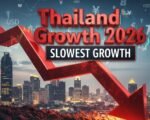From Wall Street mentors to real-life business playbooks, a new wave of athletes is learning how to win outside the game
Cole Anthony didn’t expect his offseason to feel like business school. Yet there he was in New York City, notebook in hand, listening to Goldman Sachs CEO David Solomon break down capital markets like a head coach drawing up a buzzer-beater play.
That was just one of the scenes from this weekend’s Athlete Immersion Program, a three-day crash course hosted by Fanatics. The sports merchandising giant is trying something ambitious: teaching athletes how to succeed once the cheering stops.
And judging by the early response — they might be onto something big.
A New Kind of Training Camp
Over two dozen current and former pros showed up to Fanatics Fest in Manhattan, but this wasn’t your usual meet-and-greet. The attendees — from the NFL, NBA and NHL — weren’t there for media day or a sneaker drop.
They came to learn.
Workshops covered everything from venture capital to tech startups to personal brand development. Sessions felt less like PowerPoint lectures and more like locker-room film study. Think: fast-paced, intense, sometimes brutally honest.
Aaron Donald, the retired Rams defensive tackle and Super Bowl champ, didn’t mince words after the event. “I’ve sat through a lot of film sessions,” he said, “but I don’t think I’ve ever had a game plan broken down like this.”

The “Coaching Staff” Is a Billion-Dollar Lineup
What really turned heads wasn’t just the content — it was who was delivering it.
This was no classroom of dusty chalkboards. The guest list read like a business-world All-Star team:
-
Michael Rubin, Fanatics founder and serial entrepreneur
-
David Solomon, CEO of Goldman Sachs
-
Todd Graves, who built Raising Cane’s into a fried chicken empire
-
Josh Harris, Apollo cofounder and 76ers managing partner
-
ESPN chairman Jimmy Pitaro
-
Boardroom’s Rich Kleiman, Kevin Durant’s longtime business partner
The common theme? People who built things. Big things. And were willing to share the scars along the way.
“Players see success on the field and assume it should translate,” said Rubin. “But business doesn’t care about highlight reels. You’ve got to learn the hard stuff.”
Here’s what stuck with players the most:
-
Nobody builds alone. Every CEO emphasized team, just like in sports.
-
Know your numbers. Passion helps, but cash flow keeps you alive.
-
Start small. The myth of the overnight success? Total fiction.
Cole Anthony, now with the Grizzlies, said he left feeling “energized but humbled.”
More Than a One-Off Event
This wasn’t a splashy PR stunt. Fanatics wants this to be a long-term play — a pipeline, really, for a new kind of athlete-entrepreneur.
The company says it’s planning year-round support. Think ongoing mentorships, pitch practice, financial education, and even access to capital. Athletes who came to the program aren’t getting just a few hours of inspiration. They’re walking away with what one attendee called “a working syllabus for my life after basketball.”
Let’s be real — not every player ends up on ESPN after retirement. A shocking number struggle financially within years of leaving the league.
This initiative, then, isn’t just about venture capital. It’s about security. Dignity. A second act that doesn’t feel like a letdown.
Athletes as Investors, Founders, and CEOs?
The timing isn’t random. In recent years, athletes have started making big moves off the field. They’re investing in sports tech, launching fashion lines, even founding VC funds.
LeBron James has SpringHill. Serena Williams launched Serena Ventures. Patrick Mahomes is in everything from soccer clubs to restaurants. These aren’t flukes anymore — they’re the trend.
What Fanatics is doing is trying to make that trend more accessible. Not everyone has LeBron’s brand or Serena’s Rolodex. But everyone, at least in theory, can be taught the fundamentals.
One thing that helps? Seeing your peers succeed. That peer effect is real.
Table: Notable Athlete-Owned Companies
| Athlete | Company | Industry |
|---|---|---|
| Kevin Durant | Boardroom | Media & Investments |
| Naomi Osaka | KINLÒ | Skincare |
| Aaron Donald | Ready | Sports Nutrition |
| George Kittle | ZenWTR (Investor) | Beverage |
| Chris Paul | PlayersTV (Co-founder) | Media/Entertainment |
This list is growing — fast.
Fanatics Is Betting on the Long Game
Michael Rubin has always operated a few plays ahead. Fanatics has quietly grown from an e-commerce brand into a vertically integrated sports empire, selling everything from jerseys to trading cards to NFTs.
This athlete bootcamp? It’s not just goodwill.
There’s a long-term strategy here. Educated, empowered athletes become smarter business partners. They think differently about equity, licensing, and IP. They become better brand collaborators. And maybe, down the line, some of them even come back to Fanatics — but not as endorsers.
As investors.
And let’s be honest — the sports world is changing fast. NIL deals in college. Streaming wars. AI-driven fitness. Athlete influence is spilling far beyond the court, the field, or the rink.
Fanatics wants to be right there at that intersection — where money, media and sport all collide.








